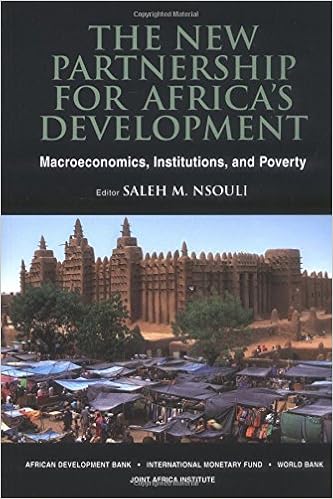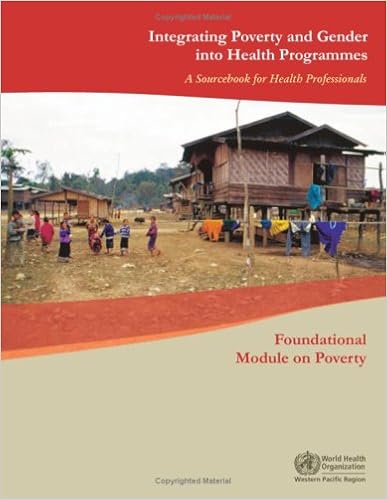
By Saleh M. Nsouli
ISBN-10: 1589062620
ISBN-13: 9781589062627
Read Online or Download New Partnership for Africa's Development: Macroeconomics, Institutions, and Poverty PDF
Similar poverty books
Malaria continues to be an international public sickness. within the Western Pacific sector, malaria is endemic in 10 nations. The occurrence fee within the quarter levels from 161. 7 consistent with one thousand humans in Solomon Islands to zero. 04 within the Republic of Korea. The innovations hired to avoid and keep watch over malaria were potent in decreasing the weight of sickness in international locations within the zone.
Flat Broke with Children: Women in the Age of Welfare Reform - download pdf or read online
Hailed as a superb good fortune, welfare reform ended in a dramatic decline within the welfare rolls--from four. four million households in 1996 to two. 1 million in 2001. yet what does this "success" appear like to the welfare moms and welfare caseworkers who skilled it? In Flat Broke, With kids, Sharon Hays tells us the tale of welfare reform from contained in the welfare workplace and contained in the lives of welfare moms, describing the demanding situations that welfare recipients face in handling their paintings, their households, and the principles and rules of welfare reform.
Within the usa, the motives or even the meanings of poverty are disconnected from the motives and meanings of worldwide poverty. The Routledge instruction manual of Poverty within the usa presents an authoritative assessment of the connection of poverty with the increase of neoliberal capitalism within the context of globalization.
New PDF release: Poverty Among Immigrant Children in Europe
Can be shipped from US. fresh replica.
- Code of the Street: Decency, Violence and the Moral Life of the Inner City
- Life After Welfare: Reform and the Persistence of Poverty
- Voices of the poor: poverty and social capital in Tanzania
- Building Decent Societies: Rethinking the Role of Social Security in Development
- Accelerating Trade and Integration in the Caribbean: Policy Options for Sustained Growth, Job Creation, and Poverty Reduction (World Bank Country Study)
Additional resources for New Partnership for Africa's Development: Macroeconomics, Institutions, and Poverty
Sample text
What are the contingency provisions needed to address reform slippages or unforeseen shocks? How can the international community support NEPAD? • What should be the relation between NEPAD and other ongoing international initiatives? • How can cooperation between donors be improved? • Under what conditions will international support likely increase? 32 NORBERT FUNKE AND SALEH M. 1). ” The press at times has interpreted NEPAD as a kind of “Marshall Plan for Africa” (see Herbert, 2002). Unlike the Marshall Plan, however, NEPAD is not foreign-led; it is an African-owned initiative.
10Edwards (2001), Eichengreen and others (1998, 1999), and Ishii and Habermeier (2002), among others, analyze policy issues related to capital account liberalization. 40 NORBERT FUNKE AND SALEH M. NSOULI Analyzing empirically the determinants of FDI to developing countries, Asiedu (2002) shows that openness to trade promotes FDI, but that higher returns on investments appear to have no significant positive impact on FDI in sub-Saharan Africa. This may be because Africa’s small and vulnerable economies are considered to present high risk in the eyes of many international investors.
4 0 1 2 3 4 5 Index of institutional quality 6 Sources: World Bank; International Country Risk Guide; and IMF (2002c, p. 51). 7 8 The New Partnership for Africa’s Development 43 as institutions for the payment of unemployment benefits, or health- and pension-related institutions. Finally, institutions for conflict management include, for example, the rule of law and high-quality judiciary systems. The distinctions among these five types of institutions suggest that reform priorities differ from country to country, depending on the development of the various types of institutions.
New Partnership for Africa's Development: Macroeconomics, Institutions, and Poverty by Saleh M. Nsouli
by Kenneth
4.0



